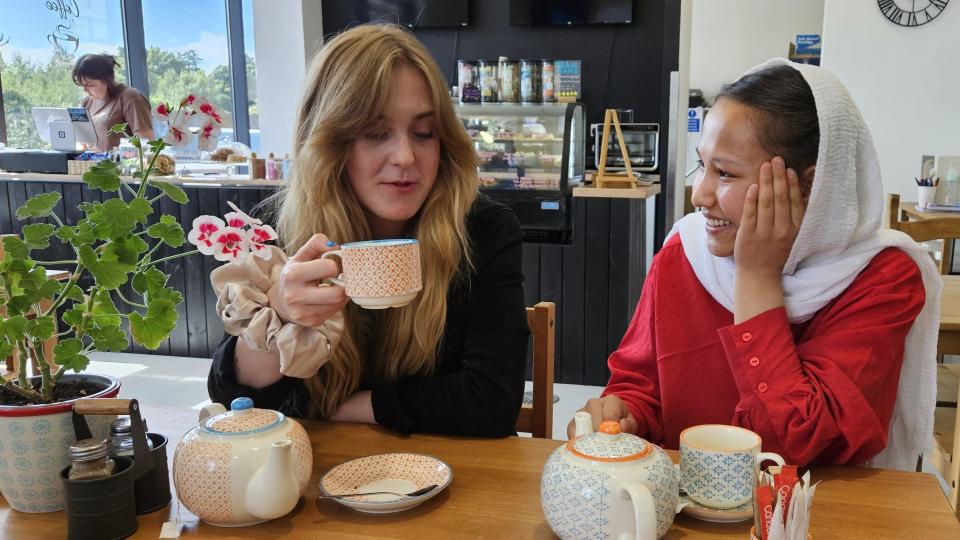It has been three years since the Taliban took control of Kabul and most of Afghanistan.
On 15 August 2021, the group seized power following the withdrawal of western military forces.
Since then, it has restricted the rights of women and girls to work, learn, and go out in public.
For Zarifa Asghari, who fled the country, Northern Ireland has become a place of safety and opportunity.
Zarifa was just 17 when she made the decision to leave her home country months after the Taliban took power.
In Afghanistan, girls are banned from education beyond the age of 11.
Zarifa, who dreams of studying medicine or politics at university, felt there was no future for her in Afghanistan.
“People were very scared,” she told BBC News NI’s Good Morning Ulster programme.
“The police were controlling the airport and wouldn’t let people in. It was like a scary scene from a movie, but it was reality.
“We left at midnight.
“We were supposed to cross the border the first night, but couldn’t because the Taliban were there.”
Zarifa, along with a dozen or so others fleeing the country, walked hours through the mountains in order to cross the border.
The group contained young children, as well as a woman who was eight months pregnant.
Zarifa escaped to Pakistan, where she remained for eight months.
She then moved to Cardiff, which she described as somewhat of a culture shock.
“I never imagined I’d leave Afghanistan,” she said.
“There is a saying – ‘home sweet home’. I spent almost my entire life in Afghanistan.”
Zarifa is hopeful that international pressure can help make life more bearable for women and girls living in Afghanistan.
“I think that the world could do more, and put them [the Taliban] under pressure to give women more rights, so that they can go to university, so that they can study and work in the community, because women are half of the community.”
‘The old me is in Afghanistan’
Two months after arriving in Cardiff, Zarifa moved again, this time to Northern Ireland.
For Zarifa, Northern Ireland has offered a new beginning. She speaks warmly of her new home, and the welcome she has received.
“I love a lot of things about Northern Ireland. The people are very welcoming, and friendly,” she said.
However, Zarifa also admits that she is yet to “find herself here”.
She is still getting used to living away from Afghanistan, and misses her home country.
“I’ve lost myself. I left the old me in Afghanistan,” she said.




This year looks brighter for Zarifa.
Earlier this year, she was reunited with her parents, who finally managed to escape Afghanistan for Northern Ireland.
Seeing her parents for the first time in more than two years was “really emotional”,” she added.
Zarifa has also embraced her love of music since moving to Northern Ireland.
In Afghanistan, the Taliban introduced strict rules banning music from being played at social gatherings.
Zarifa has taken advantage of her freedom to express herself creatively and earlier this year wrote a song titled Afghan Girl.
The song, which was performed by friend Eva Kearney at the Oh Yeah Music Centre, captured the attention of music legend Peter Gabriel.
The former Genesis frontman invited Zarifa and Eva to Real World studios to record an EP.
“Art is really important for the world,” Zarifa said.
“I hope I can touch people’s hearts with my music.”





